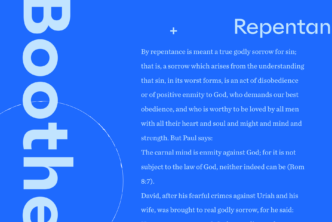A few years ago, I tweeted something that made pretty big and unexpected waves on social media. The tweet read, “Sisters, if we are smart enough to cook, raise/teach children, take care of homes, work 9–5s, or do whatever it is that we do daily, then we are smart enough to study Scripture. How can we consider ourselves capable of doing so much but limit ourselves in learning Scripture?”
I still remember being shocked by the profound response from both women and men. This response still opens the question of why so many people, particularly women, were drawn to comment and retweet my sentiments in such large numbers. What was so unique and intriguing about my words?
Knowing God
Perhaps this brief thought was a refreshing affirmation and reminder that, as women, we are capable and free to do more. Maybe it was a reminder that God has created women for more than just task mastering. We have been created for more in that we have been created for his glory and good pleasure (Rev 4:11).
Scripture makes it clear that people were made for relationship with God, and we were designed to know, worship, and love him. And the best way to foster a genuine relationship with him is through the study of Scripture.
I’ve often heard the question, “how can the heart love what the mind does not know?” To have an authentic relationship with God, there must be a connection between the head and heart. We are commanded to love God with all our hearts, minds, strength, and souls (Luke 10:27). To that end, our goal in studying Scripture is not merely about increasing our intellect for the sake of doing so but rather to learn the truths of God as he has so revealed.

The good portion
In Luke 10:38–42 we meet two women who played a relevant role in Jesus’ earthly ministry. Mary and Martha were sisters—yet very different.
Martha was a hospitable woman who meticulously prepared her home for her guests. I can imagine that she was probably frantically running around her home, ensuring that things were up to par and that all guests were served well.
However, Mary was not as concerned with the tasks at hand. Mary chose to sit at Jesus’ feet and intently listen to his teachings. Mary’s actions undoubtedly exasperated Martha, and her frustrations become all the more evident when she asks Jesus to tell her sister to help tend to their guests (10:40). Instead of obliging, Jesus responds by saying, “Martha, Martha, you are anxious and troubled about many things, but one thing is necessary. Mary has chosen the good portion, which will not be taken away from her” (10:41–42).
As we can see from this commonly recounted passage of Scripture, Martha prioritized her work in the home above learning the truths of God. Although well-intentioned and laudable, Martha’s work was not essential to life. Her busyness was not inherently wrong but was more of a distraction.
Mary, on the other hand, had assumed the posture of a learning disciple by choosing to sit at the feet of Jesus. It’s not that Mary had forsaken her responsibilities in the home. I’m sure that she had helped at some point. But Mary had prioritized her life in a way where her relationship with Jesus was paramount. She focused more on using her time for engagement with Christ than entertaining Christ. She had chosen the “good portion” because she had prioritized her time learning from Christ over domestic affairs. In his commentary, Matthew Henry explains,
She had justly given the preference to that which best deserved it; for one thing is needful, this one thing that she has done, to give up herself to the guidance of Christ, and receive the law from his mouth. Note, serious godliness is a needful thing, it is the one thing needful; for nothing without this will do us any real good in this world, and nothing but this will go with us into another world.1
Jesus’s words to Martha are just as relevant and needed today as they were then. Many of us are walking in the steps of Martha. We’ve prioritized the “worldly” over the “spiritual.” We’ve chosen the “okay” portion over the “good” portion.
Our worldly affairs become hindrances when they distract us from a genuine relationship with Christ. As women, we have been called to more than our “to-do” lists. We have been called to a fruitful and full relationship with Christ. And while this fruitful and full relationship with Christ can happen while we are mopping floors and wiping noses, it can also occur when we are spending intentional time studying Scripture individually and in community.
Permission to learn
One thing that stands out to me in this passage from Luke is that Christ affirmed Mary’s interest in learning. Christ did not shoo Mary away to work in the kitchen, nor did he rebuke her desire to sit at his feet. Instead, he affirms that Mary has done what is good and right.
Culturally, this was unheard of at that time. It was not acceptable among the Pharisees and Sadducees for women to learn from Jewish leaders in this way. Jesus’s response to Mary provides deep encouragement for women who desire to learn the truths of Scripture, and his actions also permit us to do so.
We can rest assured that Christ truly wants us to know and love him. And how freeing and blessed is it to know that Jesus cares about our daily responsibilities as women as well as our posture of heart behind each action?
Theology can be best defined as “the study of God.” And when we commit to sitting at the feet of Jesus by intaking Scripture, we do the work of a theologian.
At one point in my life, I was unclear and perhaps deceived about what it meant to be a theologian. I knew that I needed to read the Bible, but I didn’t think that being a theologian was something that God had permitted me to do. I viewed theology as something reserved for pastors and elders. As a result, my time spent in Scripture was more centered on me and learning how to be a better version of myself as a wife, mother, and homemaker than it was centered on simply learning who God is and what he has done for his people.
In hindsight, I realized that my studies needed more depth. I had been familiar with the Bible for many years, but sadly I knew very little about God and his attributes. Thankfully, God drew me closer to him through sheer grace and mercy. He allowed me to see how selfishly I was approaching my time with him.
Gradually, I began digging deeper into his Word to learn more about him, to sit at his feet. And my study time has grown into more than just a quick ten minutes of reading my favorite passages. It has become a refreshing place of joy, hope, and fresh perspective.
The Logos Bible app has also become my preferred way to study Scripture and grow in Bible literacy since first being introduced to it in 2013. And as I learn more about God, I sincerely desire to know more about him.
Editor’s note: The free version of Logos is available for web, mobile, and desktop.
Know truth, teach truth
Coupled with my genuine desire to know God came an honest desire to teach others about God. My desire to teach is rooted in a yearning to see other women truly behold God. I pray that women will not simply seek God’s hand of provision when it comes to “getting things done” but will also authentically seek to know him intimately.
I have been blessed with opportunities to teach women within the home, church, and parachurch settings; however, teaching the truths of God is not limited to those settings. Christian women are given daily opportunities to lead other women to the good portion. Christ has called every follower of him to a life of discipleship (teaching), and he has equally equipped us (by the power of the Holy Spirit) to fulfill this call.
Sisters, we should desire to know God in fullness and truth. And not only should we know him, but we should also unrestrainedly share the truth of God with others. Today, I challenge you to freely choose the good portion of life by ferociously abandoning yourself in the pages of God’s Word. Remember, women can be theologians too!
Related resources
Women and Christian Mission: Ways of Knowing and Doing Theology
Practical Theology for Women: How Knowing God Makes a Difference in Our Daily Lives
Systematic Theology: An Introduction to Biblical Doctrine, 2nd ed.
Regular price: $47.99





